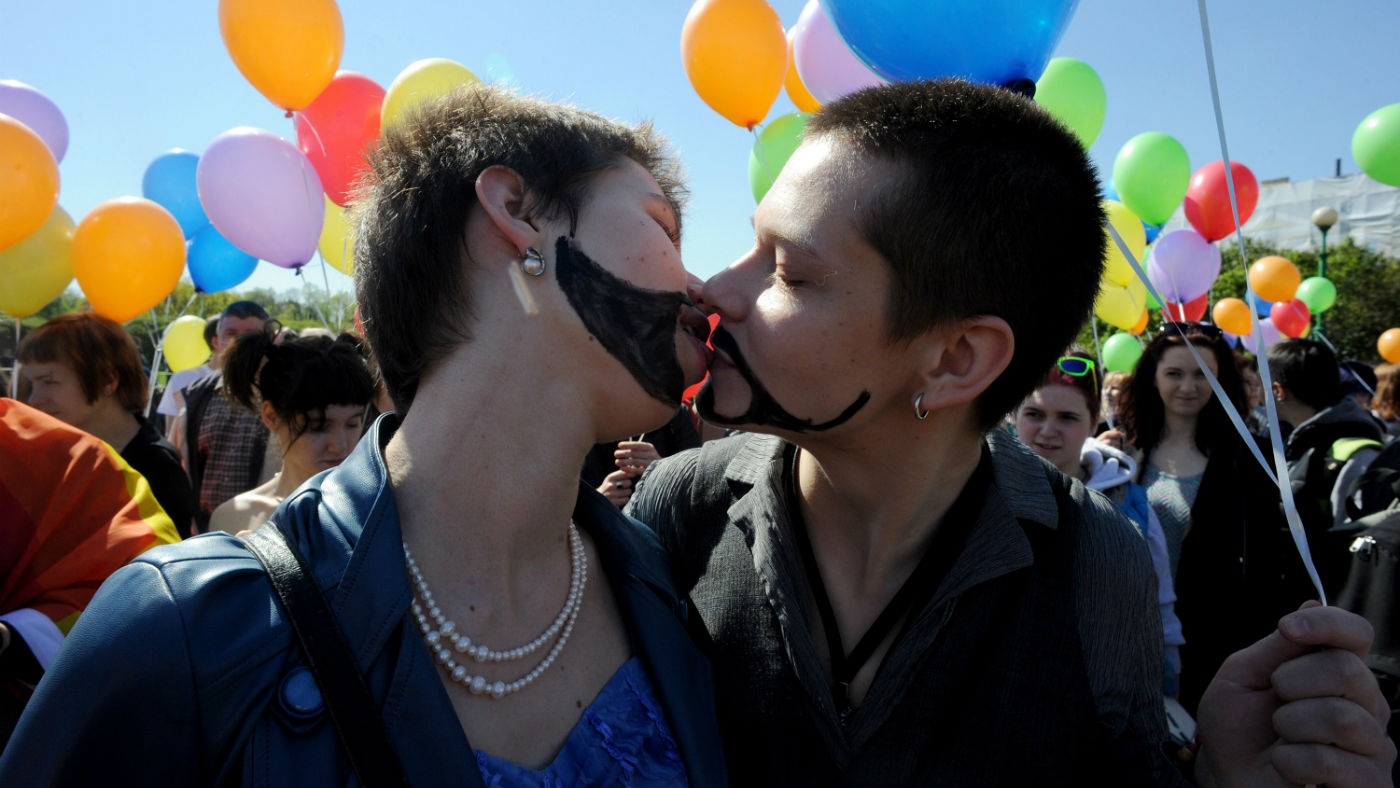European court rules against Russian 'gay propaganda law'
Activists claim 'an enormous victory' after judges say legislation promotes homophobia

A free daily email with the biggest news stories of the day – and the best features from TheWeek.com
You are now subscribed
Your newsletter sign-up was successful
Russian laws banning the "promotion" of homosexual behaviour violate the right to freedom of expression and reinforce "stigma and prejudice", the European Court of Human Rights ruled yesterday.
Following a protracted legal battle, judges declared in favour of three Russian gay rights activists, who say the four-year-old legislation, commonly known as the "gay propaganda law", is discriminatory and used to target and intimidate the LGBT community in the country.
They also rejected Moscow's claim that "regulating public debate on LGBT issues may be justified on the grounds of the protection of morals" and said that by adopting the law, Russia was encouraging homophobia.
The Week
Escape your echo chamber. Get the facts behind the news, plus analysis from multiple perspectives.

Sign up for The Week's Free Newsletters
From our morning news briefing to a weekly Good News Newsletter, get the best of The Week delivered directly to your inbox.
From our morning news briefing to a weekly Good News Newsletter, get the best of The Week delivered directly to your inbox.
Claimant Nikolai Alexeyev told the LA Times the decision was "an enormous court victory for LGBT people in Russia,"
However, despite the court overseeing the application of the European Convention on Human Rights to the 47 members of the Council of Europe, which includes Russia, "it is unclear what impact the ruling will have", says The Independent.
While the judges' decisions are binding, a 2015 law passed by the Russian Duma says the constitution supersedes ECHR rulings.
Homosexuality was legalised in Russia in 1993, shortly after the collapse of the Soviet Union, but anti-gay sentiment remains strong. Earlier this year, the Russian federal republic of Chechnya was condemned following well-documented reports of the systematic persecution, imprisonment and torture of gay men, which its government denies.
A free daily email with the biggest news stories of the day – and the best features from TheWeek.com
The 2013 law "has been seen as a central plank of President Vladimir Putin's nationalist message, one that has positioned Russia as a defender of Christian and traditional values, and the West as decadent and godless", says the New York Times.
-
 What is the endgame in the DHS shutdown?
What is the endgame in the DHS shutdown?Today’s Big Question Democrats want to rein in ICE’s immigration crackdown
-
 ‘Poor time management isn’t just an inconvenience’
‘Poor time management isn’t just an inconvenience’Instant Opinion Opinion, comment and editorials of the day
-
 Bad Bunny’s Super Bowl: A win for unity
Bad Bunny’s Super Bowl: A win for unityFeature The global superstar's halftime show was a celebration for everyone to enjoy
-
 Epstein files topple law CEO, roil UK government
Epstein files topple law CEO, roil UK governmentSpeed Read Peter Mandelson, Britain’s former ambassador to the US, is caught up in the scandal
-
 Iran and US prepare to meet after skirmishes
Iran and US prepare to meet after skirmishesSpeed Read The incident comes amid heightened tensions in the Middle East
-
 Israel retrieves final hostage’s body from Gaza
Israel retrieves final hostage’s body from GazaSpeed Read The 24-year-old police officer was killed during the initial Hamas attack
-
 China’s Xi targets top general in growing purge
China’s Xi targets top general in growing purgeSpeed Read Zhang Youxia is being investigated over ‘grave violations’ of the law
-
 Panama and Canada are negotiating over a crucial copper mine
Panama and Canada are negotiating over a crucial copper mineIn the Spotlight Panama is set to make a final decision on the mine this summer
-
 Why Greenland’s natural resources are nearly impossible to mine
Why Greenland’s natural resources are nearly impossible to mineThe Explainer The country’s natural landscape makes the task extremely difficult
-
 Iran cuts internet as protests escalate
Iran cuts internet as protests escalateSpeed Reada Government buildings across the country have been set on fire
-
 US nabs ‘shadow’ tanker claimed by Russia
US nabs ‘shadow’ tanker claimed by RussiaSpeed Read The ship was one of two vessels seized by the US military